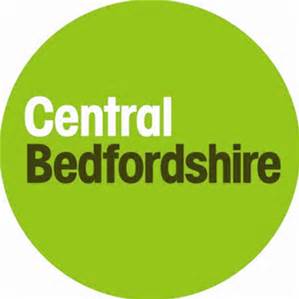Participants of the Central Bedfordshire Scholarship Programme can apply for a grant under the Central Bedfordshire Grant Programme once they have completed 12 hours of an applicable course.
Eligibility criteria
Applicants must be
- A trading enterprise or engaged in enterprise activity,
- Registered in the UK with a base in the Central Bedfordshire area, and
- Established for at least one year.
Enterprises in liquidation, dissolved, struck off or subject to a striking-off notice are not eligible.
For the purposes of this programme, enterprise means a sole trader, micro business, small and medium-sized enterprise, or large business. It also includes social enterprises where these engage in economic activity.
Applicants may apply for one scholarship and one grant from each programme intervention.
The purpose of these grants is to provide funding for businesses to enact the business growth or decarbonisation plans an applicant has developed whilst undertaking a Central Bedfordshire Scholarship course.
Separate funds are available for each intervention as set out below:
Intervention 1– Business Scale-Up and Resilience
Applicants can apply for a grant of up to £2,700. Applicants are required to provide a minimum of 20% match funding towards the total costs of the proposed project.
Intervention 2 – Local Business Decarbonisation
Grant criteria
- Grant application must be linked to a credible business growth or decarbonisation plan.
- Three supplier quotes must be provided for each individual item of the proposed project expenditure.
- Proposed project expenditure should aid the enterprise to move towards greener, more sustainable practices.
Selecting suppliers
The Enterprise is not obliged to accept the lowest quotation received, but where the Enterprise wishes to accept a higher quote, a written explanation of the rationale behind any such decision will be required, which demonstrates the chosen supplier’s experience and/or value for money.
Costs that cannot be funded
Not all business costs are eligible, and here are some examples that cannot be included (this list is not definitive):
- General business set up costs or core running or staff costs or working capital, e.g. to buy stock, pay wages or salaries, reduce debt or support utility bills, or expenditure to comply with statutory regulations.
- Items not directly needed to deliver the proposed projects or non-business expenditure.
- Costs on the project incurred before a grant offer is made or that cannot be evidenced within the grant scheme end-date.
- The direct like-for-like replacement of items for an existing purpose, e.g. to replace broken, worn out or outdated equipment (i.e. not driven by energy efficiency/carbon reduction considerations), or the routine replacement of items and consumables, including laptops and software licences.
- IT equipment, including (but not limited to) laptops, computers, monitors, peripherals, servers, phones, tablets, screens, scanners, printers, photocopiers, network devices and physical storage (unless they are integral to the success of the project and not standalone items).
- The purchase of land and/or buildings or improvements to domestic or private dwellings.
- VAT, even where it is a non-recoverable cost.
- Repeat applications, including from linked companies, no more than one application from a Group of linked enterprises
Funding decisions
A Grant Panel will consider all applications. The Grant Panel will review the application and respond within four weeks. The Grant Panel may request further information before making a final decision.
The Panel will assess each application on a case-by-case basis, taking into consideration the following criteria:
- Clarity of proposition – how the funding aligns with the UK Shared Prosperity Fund or Rural England Prosperity Fund support intervention.
- Value for money – with a realistic forecast.
- The impact on the Enterprise and the local economy – an assessment of the scale and ambition of the proposal.
- The need for financial support – why does the enterprise need the grant funding?
- Deliverability – the likelihood of the business growth or decarbonisation plan being realised in the timescales set out.
- Financial viability of the Enterprise – each applicant will be subject to a credit check.
The Grant Panel has the right to refuse grant assistance or decide on the percentage of grant awarded against eligible expenditure. The Grant Panel’s decision is final.
If the applicant has been awarded a grant once the Enterprise has paid for the agreed project expenditure, they can submit a grant claim.
Funded assets may be subject to an asset tag and need to be kept for a minimum of 3 years by the grant recipient/Enterprise.
Grant claim process
To submit a grant claim, the applicant must provide:
- The completed grant claim form
- The required evidence of their procurement
- A certified copy of the supplier invoice(s)
- A certified redacted Business bank statement showing that the supplier has been paid
If the Enterprise has paid their suppliers using a credit card, they will need to provide evidence of full payment to the credit provider before the grant payment is paid by providing the following:
- A certified redacted credit statement from their credit facility showing that the supplier has been paid
- A certified redacted Business bank statement showing that the credit facility has been paid
For further information about the Central Bedfordshire Grant Programme please contact bettanycentre@cranfield.ac.uk





